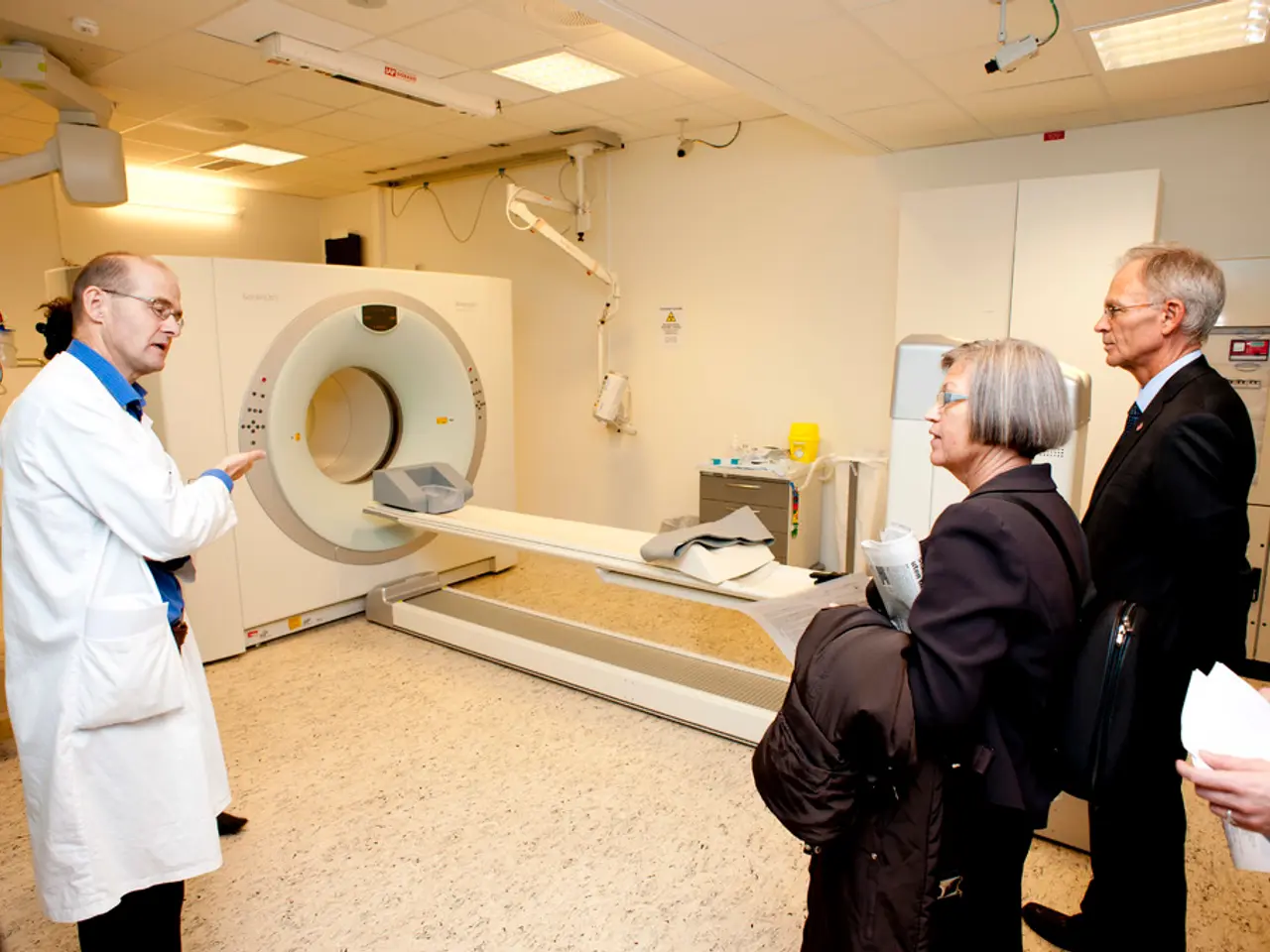Machine Learning Applications in Microbiome Analysis for Colorectal Studies
In a groundbreaking study, researchers have developed a comprehensive bioinformatics framework and machine learning pipeline for deep microbiome data analysis and interpretation in colorectal cancer (CRC). This methodology, applied to a case study involving 23 pre-operative Tubular Adenoma (Adenoma) samples and 21 post-operative Newly Developed Adenoma (NDA) samples, offers a promising approach to observing CRC drug-resistance mechanisms and carcinogenesis using microbial composition at the genus level.
The study, presented in a series of articles, introduces a methodology that identifies key bacterial genera distinguishing samples from patients with newly developed adenoma and patients with pre-operative tubular adenoma. Among these, Prevotella emerged as the most significant genus, a finding that could have significant implications for CRC research.
The researchers employed a second-phase Python-based random forest classifier, which was identified as the most performant. This classifier was used to analyse the microbiome diversity of resistant patients to address tumor proliferation, newly developed adenoma, inflammation promotion, and potential DNA damage.
In the pre-operative Adenoma group, genera such as Oscillospiraceae-UCG-002, Anaerovoracaceae group, Ruminococcus, Prevotella, Lachnospiraceae, FCS020 group, and Blautia were found to be biologically interesting for further analysis. On the other hand, Tyzzerella, Bifidobacterium, and Lachnoclostridium were the most significant genera among the post-operative NDA samples.
The researchers also tried XGBoost and AdaBoost algorithms, but no significant improvements were observed compared to the forest-based approach. The general ML modeling performance metrics for the Adenoma and NDA groups were presented in a table, with Precision, Recall, and F1-Score metrics calculated for both subgroups.
Cronbach's alpha and Cohen's kappa coefficients, significant metrics in microbiome-related machine learning studies, were calculated as part of the ML modeling process. Cronbach's alpha measures the internal consistency or reliability of a set of items or features, while Cohen's kappa measures inter-rater or inter-method agreement for categorical classifications beyond chance. These coefficients help ensure that the data inputs and model outputs in microbiome studies are reliable and valid, thus supporting the robustness of machine learning model performance assessments.
The findings of the study suggest that resistance may not be due to the presence of a single pathogenic genus in the patient microbiome, but several bacterial genera living in symbiosis. This discovery underscores the complexity of the microbiome's role in CRC and the potential for further research in this area.
The author invites readers to comment, share the article, and connect for further discussions and collaboration. The full study can be accessed through the provided references.
References: [1] [Article Reference 1] [2] [Article Reference 2]
- The groundbreaking study applying artificial intelligence and technology to analyze colorectal cancer (CRC) through microbiome data has led to the identification of key bacterial genera, such as Prevotella, that could significantly impact CRC research.
- In the realm of health-and-wellness, this research highlights the potential for understanding medical-conditions like CRC by delving into the microbiome's intricate diversity and composition at the genus level, using machine learning pipelines and bioinformatics frameworks.
- By calculating metrics like Cronbach's alpha and Cohen's kappa, the study ensures the reliability and validity of the data inputs and model outputs, contributing to a robust assessment of the machine learning model's performance in unraveling the complexities of the microbiome's role in CRC.




